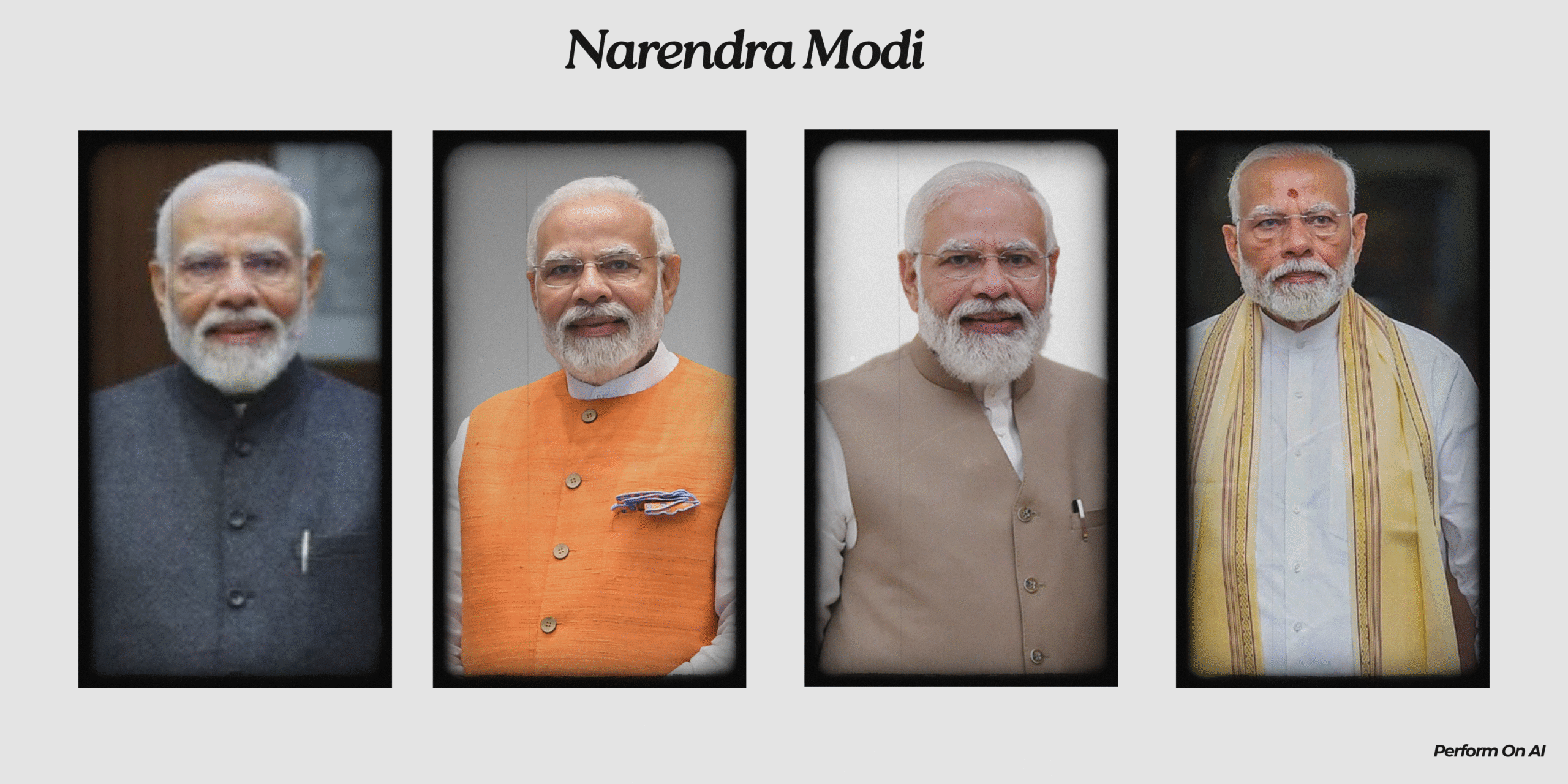Born on September 17, 1950, in Vadnagar, India, Narendra Modi rose from modest beginnings to become one of the most influential political leaders in India. With a Master’s degree in political science from Gujarat University, his early political grooming began with the Rashtriya Swayamsevak Sangh (RSS), where he joined in the early 1970s. His organizational prowess became evident as he established a local branch of the Akhil Bharatiya Vidyarthi Parishad, the RSS’s student wing.
Rise in the Bharatiya Janata Party (BJP)
Modi officially joined the BJP in 1987 and was soon made general secretary of the Gujarat unit. He played a crucial role in the BJP’s rise in Gujarat, contributing significantly to the party forming its first government in the state in 1995. Though that government was short-lived, Modi’s reputation as a strategist soared, leading to his promotion to key positions in the national party organization.
Chief Minister of Gujarat (2001–2014)
In 2001, Modi became the Chief Minister of Gujarat following the resignation of Keshubhai Patel. His first term was immediately marked by the tragic 2002 communal riots, which drew both domestic and international criticism. Despite the controversy, Modi led the BJP to successive victories in the 2002, 2007, and 2012 Gujarat assembly elections. Under his leadership, Gujarat experienced substantial economic development and infrastructural growth, helping Modi position himself as a pro-business reformist.
Journey to National Leadership
Modi’s growing influence culminated in his appointment as the BJP’s lead campaigner for the 2014 Lok Sabha elections. Projecting a platform of development and strong governance, Modi led the BJP to a resounding victory, making it the first party in 30 years to secure a single-party majority in the Lok Sabha. On May 26, 2014, he was sworn in as India’s 14th Prime Minister.
Major Reforms and Controversies (First Term: 2014–2019)
Modi’s initial years as Prime Minister saw a slew of reforms:
- Demonetization (2016): Withdrawal of high-value currency notes aimed at curbing black money.
- Goods and Services Tax (GST): A single indirect tax regime replacing a complex system of local taxes.
- Make in India, Digital India: Campaigns to promote manufacturing and digital infrastructure.
- Foreign Policy Achievements: Hosted Chinese President Xi Jinping and visited the U.S., including a high-profile meeting with President Barack Obama.
However, economic disruptions and increasing Hindu nationalism also became prominent themes of his first term. Modi faced criticism for rising unemployment and rural distress.
Resurgence in 2019 and Jammu & Kashmir Reforms
Despite setbacks in state elections in 2018, Modi leveraged national security issues to return to power in 2019 with an even stronger mandate. Key actions in his second term included:
- Revocation of Article 370 (2019): Ended the special status of Jammu and Kashmir, bringing the region under direct union control.
- COVID-19 Response: Enforced a nationwide lockdown and facilitated vaccine development and distribution.
- Agricultural Reforms (2020): Enacted and later repealed controversial farm laws after massive protests.
The Ram Mandir and 2024 General Elections
Fulfilling a long-standing BJP promise, Modi presided over the consecration of the Ram Mandir in Ayodhya on January 22, 2024. This religious-cultural milestone was aimed at galvanizing Hindu voters ahead of the 2024 general elections. Although the BJP set a target of 400 seats for the NDA, it secured only 240 on its own. However, with NDA allies, the total reached 293, ensuring Modi’s third term as Prime Minister.
Modi’s Legacy and the Road Ahead
Modi’s legacy is a blend of administrative reforms, bold economic initiatives, and ideological assertion. His tenure has redefined Indian politics:
- Global Diplomacy: Elevated India’s standing through strategic international partnerships.
- Social Initiatives: Swachh Bharat, Jan Dhan Yojana, Ujjwala Scheme.
- Polarization Accusations: Critics argue that his tenure has heightened religious and political divides.
Despite challenges, Narendra Modi remains a dominant force in Indian politics, with his third term marking an era of coalition-based governance, a shift from the absolute majorities he once enjoyed.
Conclusion From humble origins in Vadnagar to becoming the only non-Congress Prime Minister to win three consecutive terms, Narendra Modi has redefined political leadership in 21st-century India. His journey continues to be watched closely both at home and abroad, with expectations high for his third innings in the Prime Minister’s Office.



